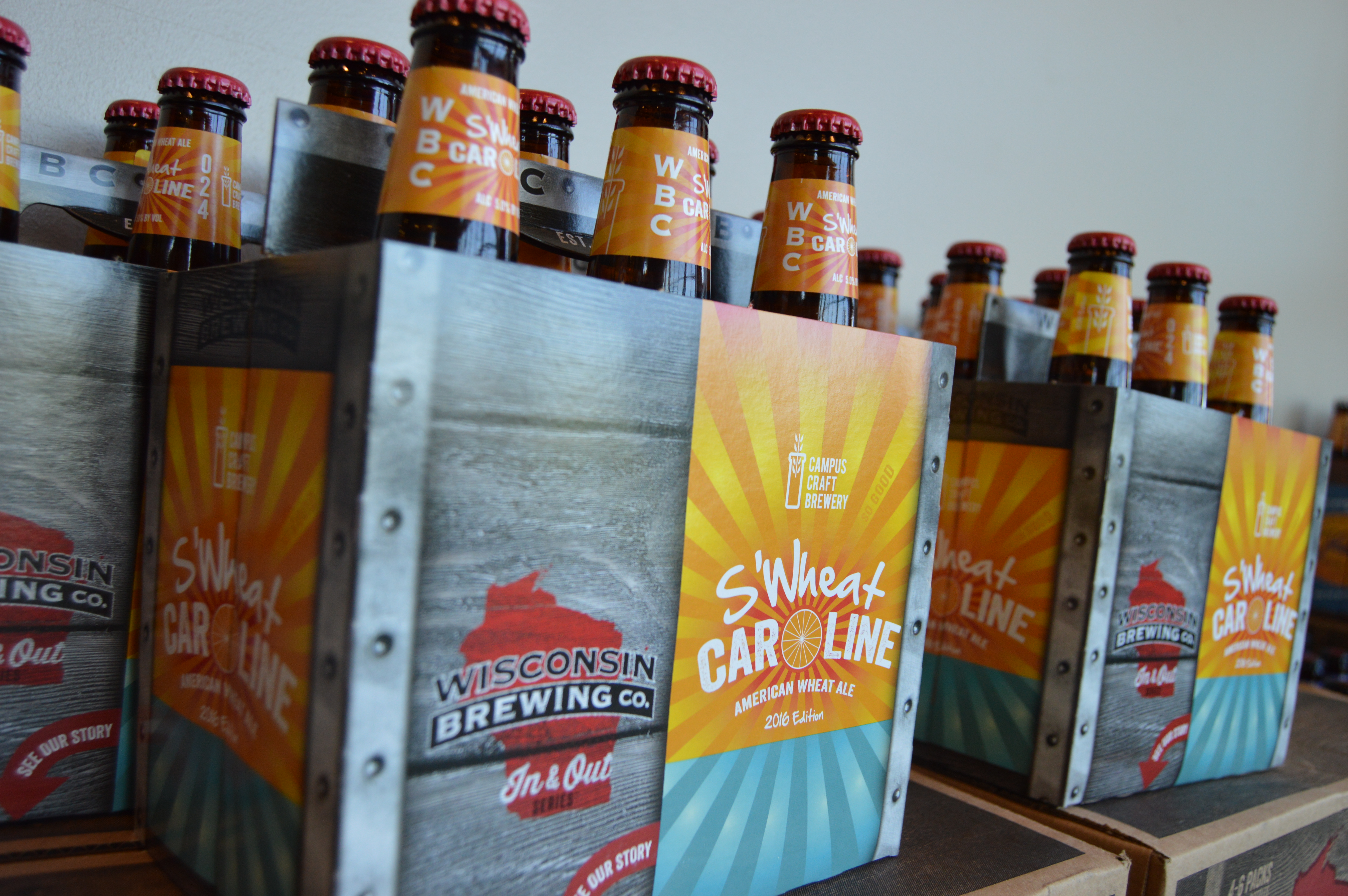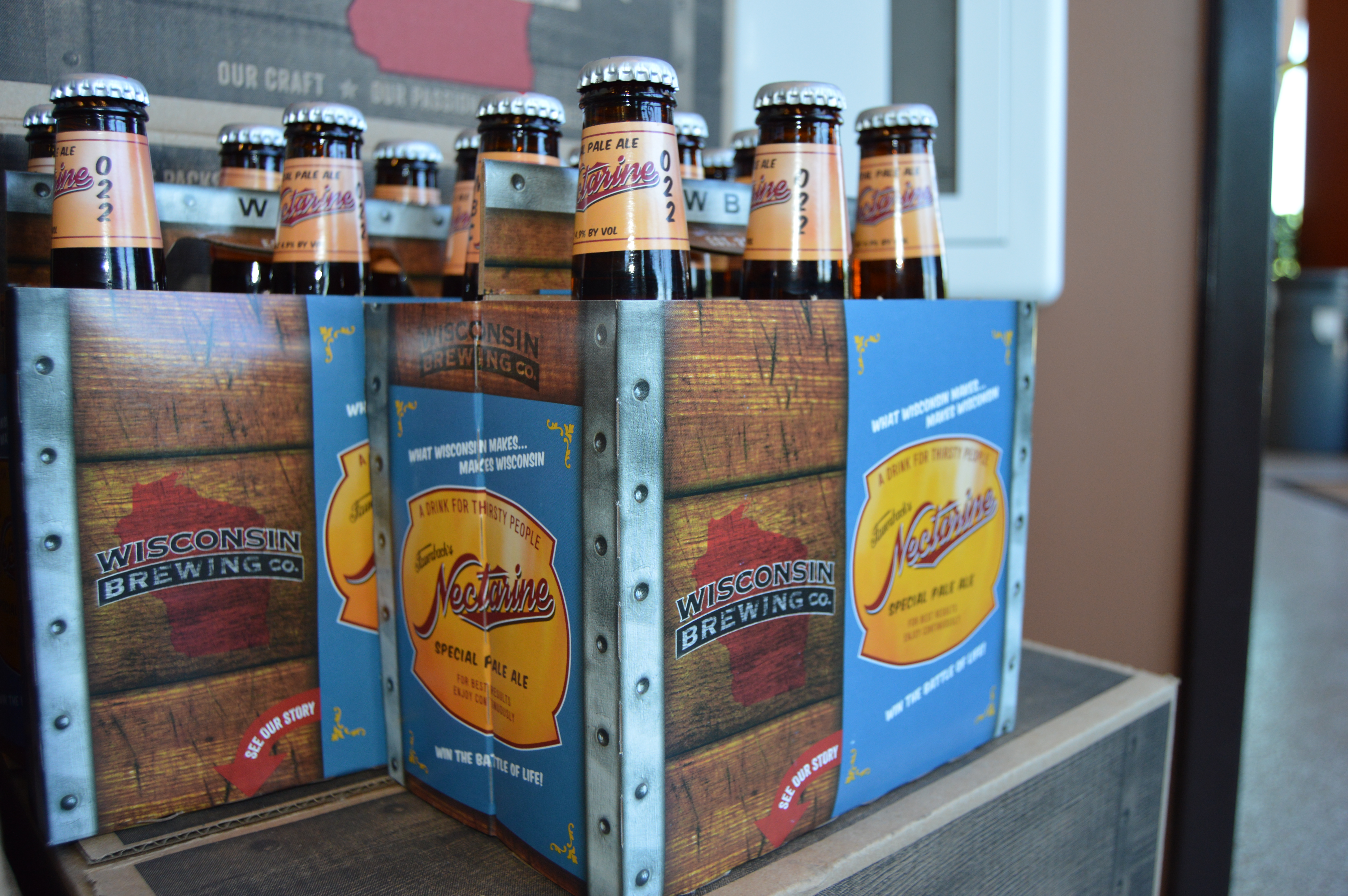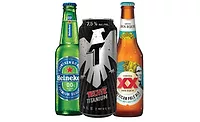Wisconsin Brewing takes storyteller approach
Craft brewer partners with other brands for production


Referred by many as America’s Dairyland — thanks the vast number of dairy producers — Wisconsin also has a rich history when it comes to brewing beer. For Carl Nolen, his brother Mark Nolen and Kirby Nelson, sharing the history of brewing in Wisconsin was a mission they set out to do three years ago when they co-founded Verona, Wis.-based Wisconsin Brewing Co.
With a mission statement that includes “We Are Wisconsin,” naming the company Wisconsin Brewing was a reflection of the company’s location and business operations, but Carl Nolen says that name evolved into much more for the start-up craft brewery.
“The ‘a-ha’ moment was a few months later when I realized that we had an opportunity to become story tellers. As Wisconsin Brewing Co., our platform includes stories that embrace the full, rich history of brewing in Wisconsin,” the company’s president and chief executive officer explains.
For example, among the company’s year-round portfolio is Fauerbach’s Nectarine. This pale ale features a citrus flavor and was released in March but originated from the portfolio of Fauerbach Brewing Co., a Madison, Wis.-based brewery that was in production from 1858 to 1966. Carl Nolen reached out to Peter Fauerbach and formed a partnership to bottle Nectarine, which originally was released in 1898 as a tonic to aid in sleep and digestion. “That was a part of telling Wisconsin history,” Carl Nolen says.
But the Wisconsin roots run even deeper for WBC. When the company built its 21,000-square-foot facility, it sourced all of the materials from Wisconsin. Even its brewhouse was manufactured in the state — Hudson, Wis. The company also features a large image of the state with numbers in various locations on the map. Each numbered dot corresponds with the Wisconsin location of one of its suppliers in the construction of the brewhouse.
“When we did that, we ran the table,” he says. “Everything is made in our state, and that’s really an important decision that we made early on that it was the right thing to do; we wanted to do it. It could have been done cheaper somewhere else, but buying stainless steel from China sounds like bullshit to me, buying local is in our DNA and that’s what we did.”
The 80-barrel brewhouse can do about eight brews a day, more than 200,000 brews a year and, this year, it has a plant capacity of 50,000 barrels, Carl Nolen explains. It also has 3 acres of land available for expansion plans, he adds.
Partnering for growth
In addition to Fauerbach’s Nectarine, Wisconsin Brewing’s year-round portfolio includes Golden Amber Ale, Yankee Buzzard and Chocolate Lab. It also has an In & Out Series of limited-edition beers, including Porter Joe, a coffee-infused porter, and Patron Saint Oktoberfest.
However, Wisconsin Brewing’s operations aren’t just for its own portfolio. The craft brewer has forged a number of partnerships, including with the University of Wisconsin – Madison and its College of Agricultural & Life Sciences.
Nelson and James Steele, a food science professor at the college, were tasting a recipe that the students were developing for its fermentation science studies. After Nelson learned that these recipes were poured out upon completion, he and Wisconsin Brewing sought to formalize a program with the university.
“We have this collaboration agreement where students learn the pathway from creative concept to commercial reality involving many different components of the university — from marketing to fermentation science,” Carl Nolen says.
Under the Campus Craft Brewery entity where the program resides, a winning recipe is selected and then the group of students undergoes full-scale commercial production at Wisconsin Brewing’s facility. This year’s winning recipe is an American wheat ale that was named S’Wheat Caroline. “The beer’s great … it’s an awesome product,” Carl Nolen says.
The limited release is available on-draft and packaged in six-packs of 12-ounce bottles while supplies last.
However, the most recognizable partnerships for Wisconsin Brewing have been with other commercial brewers. Among the partnerships is with Los Angeles-based Pabst Brewing Co. and Wauconda, Ill.-based Small Town Brewery, which has a distribution partnership with Pabst.
Pabst approached Wisconsin Brewing last year to produce Old Tankard Ale. Although the scale of production for the packaging operations resulted in the product being moved to another contract facility, Wisconsin Brewing still handles the draft production.
The positive working relationship also parleyed into its current partnership with Small Town and Not Your Father’s Root Beer 10.7 alcohol-by-volume brew of which Wisconsin Brewing manufactures and packages in 22-ounce bomber bottles and kegs.
“It’s been great and I think it’s strategic for us because it puts our young company with a very large company,” Carl Nolen says. “We’re honored that they could pick a production partner anywhere in America and they picked us. I take that very seriously, and I’m very, very proud of it for our company and that’s why we want to work so hard to over deliver.”
Additionally, Wisconsin Brewing remains open to forming new partnerships with other brewers and in June finalized plans with Toppling Goliath, Decorah, Iowa. Wisconsin Brewing now helps produce the craft brewer’s flagship beer, Dorothy’s New World Lager.
“Working with our sister-state, Clark [Lewey] and the team at Toppling Goliath will leverage opportunities for both breweries,” Carl Nolen said in a statement at the time of announcement. “As we look to the future, we’re considering cross-promoting new beers especially made for beer lovers in Wisconsin, Minnesota and Iowa. We’re really proud to be working with Toppling Goliath and looking forward to many new projects together.”
Contract relationships like these are among the reasons the start-up brewery opted to build a state-of-the-art facility, Carl Nolen explains.
“When we started our company we started big because I believe that the biggest challenge and hurdle for craft brewers today is managing capacity,” he says. “If you start too small, more likely you will be too small because the cost of the infrastructure is so extraordinary; there’s not enough cash flow from operations to leap ahead with capacity. So, you’re hearing about the industry is growing very fast, but a lot of craft brewers aren’t growing and [the reason] why is because stainless steel is very expensive.”
Because of this challenge for other craft brewers, the team decided to start big to not only serve the Madison market with its own brews, but also aid in the growth for other craft brewers.
Yet, Carl Nolen recognizes the effect SKU proliferation has had on the beer segment. Because of this, he anticipates we will start to see a deceleration of innovation, but an increase in quality.
“It can’t be all the new shiny objects every single week,” Carl Nolen says. “It’s not sustainable to have new brand every day. I think what’s going to happen … is quality is going to prevail. Consumers today demand and expect for a couple of reasons very, very high quality products.”
With this mindset, Wisconsin Brewing remains committed to aiding in the production of high-quality brews — whether it be from its own portfolio or from others’.
Looking for a reprint of this article?
From high-res PDFs to custom plaques, order your copy today!




